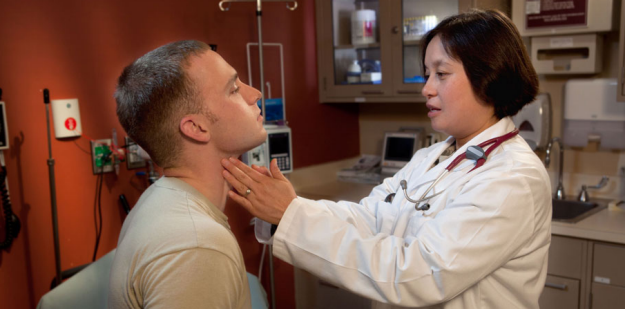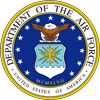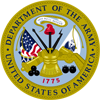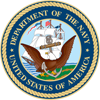 Prev - 66T Prev - 66T | Nurse Corps Jobs | Next - 66H |
Family Nurse Practitioner - 66P

- Active/Reserve:Both
- Officer/Enlisted:Officer
- Restrictions:None
An integral component of the U.S. Army health care team, the Army Nurse Corps continues to distinguish itself from the traditional nursing field. Family nurse practitioners are a critical component in providing primary health care support for adults and children during humanitarian missions, other contingency operations and peacetime. Their scope of practice promotes health, wellness and disease/injury prevention.
Elicit comprehensive health histories, perform complete physical examinations, order and/or perform diagnostic tests, analyze data and formulate problem lists, develop and implement plans of care, collaborate with other health professionals and refer patients as appropriate Conduct and supervise direct patient care, and plan and execute disease prevention and health promotion programsExercise command of medical units as provided by law and regulation Perform special staff functions in health support for commanders at all levelsConduct medical research on diseases of military importance, and conduct, supervise, and participate in graduate medical education and training of other medical personnel needed to sustain a robust and readily available medical systemUnique duty positions include: family nurse practitioner; chief, ambulatory nursing; chief, primary care nursing; chief, health promotion; family nurse practitioner consultant to the surgeon general
Active: Bachelor's degree in nursing from a program accredited by the Accreditation Commission for Education in Nursing (ACEN) or the Commission on Collegiate Nursing Education (CCNE) or accepted by the U.S. Secretary of EducationBetween 21 and 42 years of age Current, valid and unrestricted nursing license as a Family Nurse Practitioner, Board certified as a Family Nurse Practitioner U.S. citizenshipArmy Reserve:Minimum of a baccalaureate degree in nursing from an accredited nursing schoolAt least one year of experience as a family nurse practitionerBetween 21 and 42 years of age (may request a waiver, Locate A Recruiter for more information)Current, valid and unrestricted nursing license current, valid and unrestricted nursing license as a Family Nurse Practitioner, Board certified as a Family Nurse Practitioner U.S. citizenship or permanent residency
ACTIVE: In the U.S. Army, the case diversity nurses experience in caring for Soldiers and their families far exceeds the medical care environment of the private sector. As an Army Nurse Corps officer, you'll have access to the most sophisticated technology, the opportunity to consult with experts in both the military and private sector, plus exceptional professional growth opportunities, which may include paid continuing education, clinical specialization and residencies.RESERVE: Your introduction to the Army Reserve begins with the Army Medical Department Basic Officer Leaders Course (BOLC), a three-week program that will expose you to the variety of mental and physical challenges you'll face as a member of the health care team. You'll learn about the U.S. Army's approach to health care firsthand, training with other professionals and attending lectures, conferences and demonstrations that cover everything from U.S. Army customs to crisis management. You may even have the opportunity to participate in a hands-on medical simulation of an in-theater field medical unit.After completing BOLC, you will serve with a Reserve unit a minimum of two days each month, and participate in annual training for at least two weeks each year. During this time, your duties may include attending professional seminars and military or nursing education courses provided by the U.S. Army. Plus, you'll have the opportunity to work in a wide range of health care environments, whether it be in a modern hospital, working with skilled professionals in a variety of clinical situations or supervising paraprofessionals in a field medical unit.
The normal environment of a Medical Nurse Corps officer's work requires timesensitive problem analysis with an accurate, sound and immediate decision. Ability to operate under stress, apply critical thinking skills, make decisions and translate these skills to battlefield conditions is critical to medical and mission success. Effective patient care requires the proper balance between technical skills and the ability to apply the appropriate treatment or procedure at the right moment. Medical Nurse Corps officers possess expert knowledge in their area of concentration, patient management, and general support and coordination principles. Nurses gain this knowledge through continuing medical education and experience sustained by mentoring, additional institutional training, continuous selfdevelopment and progressive levels of assignments within their specialty.
The Armed Services Vocational Aptitude Battery (ASVAB) is an examination that is administered by the United States Military Entrance Processing Command. It is used to determine qualification and helps predict future academic and occupational success in the military.
No ASVAB
ACTIVE BENEFITS:In addition to the many privileges that come with being an officer on the U.S. Army health care team, you'll be rewarded with:
Army Nurse Accession BonusHealth Professions Loan Repayment Program Travel opportunities, including humanitarian missionsNocost or lowcost medical and dental care for you and your familyNoncontributory retirement benefits with 20 years of qualifying service30 days of paid vacation earned annuallyRESERVE BENEFITS:
Special Pay for nurses with their Bachelor of Science in NursingHealthcare Professionals Loan Repayment ProgramNetworking opportunitiesNoncontributory retirement benefits at age 60 with 20 years of qualifying serviceLowcost life and dental insuranceTravel opportunities, including humanitarian missionsBoth active and Reserve officers enjoy commissary and post exchange shopping privileges; a flexible, portable retirement savings and investment plan similar to a 401(k); may receive pay for continuing education; and specialized training to become a leader in their field.
See the whole list of Army Occupational Specialties here
To learn more about the Army's rank structure, see our complete list of Army ranks.
To see a list of military medals and decorations that can be earned by servicemembers in the Army and other branches of the military, see our list of military decorations and medals.








































































































































